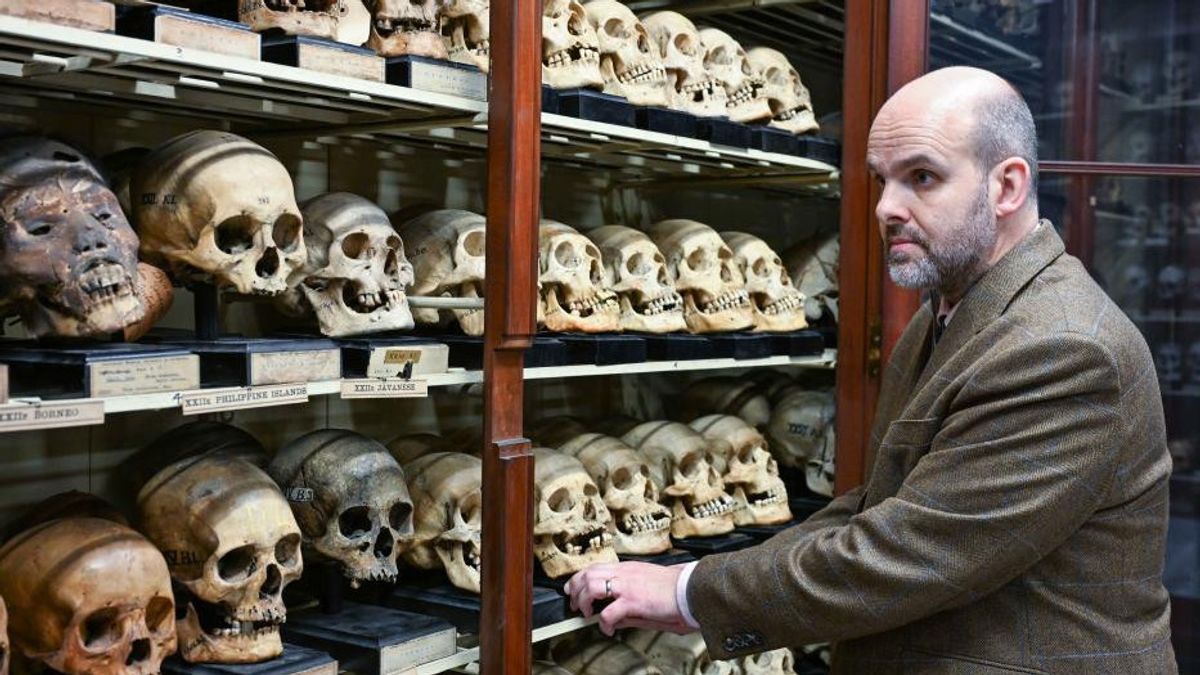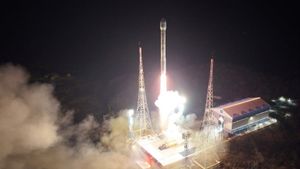JAKARTA - The University of Edinburgh, England returned the four skulls of tribal fighters estimated to have died about 150 years ago to Taiwanese indigenous communities earlier this month, a move that was hailed as a "transitional justice bottle".
The skull was allegedly taken as a war trophy by Japanese soldiers who invaded southern Taiwan in 1874 and fought the Paiwan people. Later, the skulls were forwarded to the University of Edinburgh in 1907.
Taiwan's Customary Community Council said the return was the first international repatriation of the ancestral bodies of Taiwanese indigenous peoples, according to the Taiwanese Customary Community Council.
The repatriation process was marked by the handover of a skull from the university to an official from the Mudun Community or known as the Botan Tribe, in a handover in the Hall of St, Cecilia, University of Edinburgh, quoted from the University of Edinburgh website on November 20.
The repatriation was "rich with historical meaning and an important milestone in transitional justice for indigenous peoples", the council said in a statement.
The skulls are said to belong to four fighters from Mudan Township, most of whom are inhabited by the Paiwan people, Taiwan's second-largest indigenous community group, according to the university.
The skull was brought to Japan by a US Navy officer who once accompanied Japan as a military adviser in the conflict in 1874. It was finally given to the Chancellor of the University of Edinburgh William Turner in 1907.
Meanwhile, the request for repatriation was submitted by the Taiwan Customary Community Council in November 2021 and granted in the following July.
Before the body was transferred to the handover process on November 3, a traditional Paiwan ceremony was held to honor the people who died.
Chairman of the Taiwanese Customary Council Icyang Parod said he hoped the public could find peace and healing from the repatriation.
He added that academic institutions and museums must work together to reflect on the injustices that occurred in history, encouraging recognition of the rights of indigenous peoples, as reported by The National News.
SEE ALSO:
In the meantime, the skulls will be placed in Taiwan's National Prehistoric Museum, pending a decision by the Mudun community regarding a permanent storage area.
Meanwhile, Tom Gillingwater, the head of anatomy at the University of Edinburgh, said the repatriation was the result of cooperation between the university and the Taiwanese community.
"We are committed to overcoming our colonial heritage and this repatriation is the latest action we have taken, in line with our old policy of returning the goods to the appropriate cultural representatives from which these items were taken," he said.
The English, Chinese, Japanese, Arabic, and French versions are automatically generated by the AI. So there may still be inaccuracies in translating, please always see Indonesian as our main language. (system supported by DigitalSiber.id)












